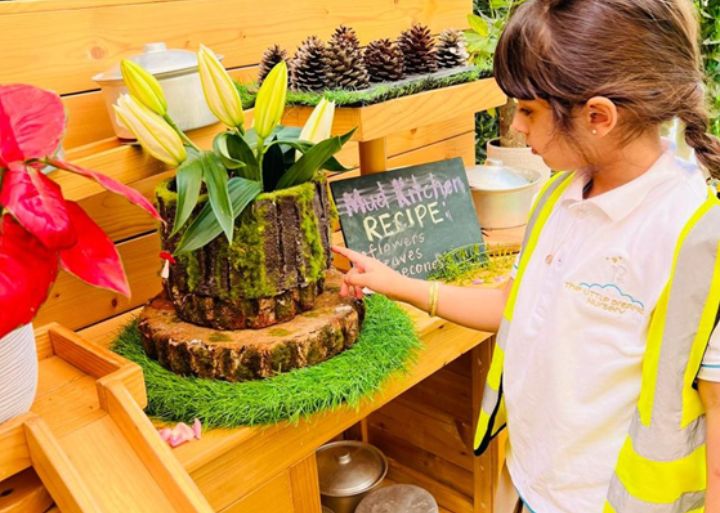In today’s digital age, children are increasingly drawn to the allure of screens, spending hours indoors immersed in virtual worlds. While technology offers numerous benefits, it’s essential to recognize the profound impact of outdoor play on a child’s cognitive development.
You might ask, what is the importance of outdoor play for cognitive development? What are the specific cognitive benefits it offers? And how can parents and caregivers encourage their children to embrace the joys of playing outside?
Let’s explore the various ways in which playing outdoors can enhance a child’s thinking, learning, and problem-solving abilities.
The Importance of Outdoor Play
Outdoor play provides a stimulating environment that fosters cognitive development in multiple ways. Here are some benefits of outdoor play on cognitive development:
- Enhanced Problem-Solving Skills
Outdoor play often involves challenges and obstacles that children must overcome. Whether it’s navigating a playground, building a fort, or exploring a natural environment, children are constantly faced with situations that require them to think critically, analyze problems, and devise solutions.
These experiences help develop their problem-solving skills and boost their confidence in their abilities.
- Improved Creativity
Outdoor play encourages imagination and creativity. With no screens or structured activities to dictate their play, children are free to let their imaginations run wild. They can create their own stories, games, and worlds, fostering their creativity and originality.
- Better Memory and Attention
Playing outdoors can improve a child’s memory and attention span. The diverse sensory experiences provided by nature, such as sights, sounds, smells, and textures, engage multiple senses and help solidify memories.
Additionally, the unstructured nature of outdoor play allows children to focus on their activities without constant distractions, improving their attention skills.
- Enhanced Social Skills
Outdoor play provides opportunities for children to interact with peers and develop essential social skills. Playing together encourages cooperation, sharing, negotiation, and conflict resolution. Children learn to communicate effectively, understand different perspectives, and build friendships.
- Increased Physical Activity
Outdoor play is inherently physical, providing numerous benefits for a child’s health and development. Engaging in physical activities helps improve cardiovascular health, strengthens muscles and bones, and promotes overall well-being. Regular physical activity is also linked to better cognitive function and academic performance.

Examples of The Importance of Playing Outside
To gain a deeper understanding of the cognitive benefits of outdoor play, let’s examine some specific examples:
- Risk-taking and Resilience
Playing outdoors often involves taking calculated risks, such as climbing trees or exploring new areas. These experiences help children develop a sense of courage, resilience, and the ability to overcome challenges. By learning to manage risks, children become more confident and adaptable.
- Nature Connection
Spending time in nature has been shown to have a positive impact on children’s cognitive development. Studies have found that exposure to natural environments can reduce stress, improve mood, and enhance creativity. Connecting with nature also fosters a sense of wonder, curiosity, and respect for the environment.
- Spatial Reasoning and Awareness
Playing outdoors can help children develop their spatial reasoning skills. Activities such as building forts, navigating trails, or playing hide-and-seek require children to understand and visualize spatial relationships. These experiences contribute to their spatial awareness and problem-solving abilities.
- Scientific Exploration
Outdoor play provides opportunities for children to explore the natural world and engage in scientific inquiry. They can observe plants, animals, and weather patterns, ask questions, and make observations. These experiences spark curiosity, foster a love of learning, and lay the foundation for future scientific exploration.

Why is Outdoor Play Important in Early Childhood?
The early years of childhood are critical for brain development. During this period, children’s brains are rapidly growing and forming new connections. Outdoor play plays a vital role in stimulating this development and laying the groundwork for future learning and success.
- Sensory Stimulation: Outdoor play provides a wealth of sensory experiences that are essential for brain development. Exploring different textures, sounds, smells, and sights helps children develop their sensory perception and cognitive abilities.
- Motor Development: Playing outdoors encourages physical activity, which is crucial for motor development. Activities such as running, jumping, climbing, and throwing help children develop coordination, balance, and strength. These physical skills are also linked to cognitive development.
- Language Development: As they play and communicate with others, children learn new words, expand their vocabulary, and improve their communication skills.
- Social and Emotional Development: Playing outdoors helps children develop important social and emotional skills. They learn to share, cooperate, negotiate, and resolve conflicts.
Benefits of Outdoor Play in the Winter
While outdoor play is often associated with warmer weather, there are many benefits to playing outside even in the winter. Here are a few reasons to encourage your child to bundle up and enjoy the winter wonderland:
- Physical Activity: Winter activities such as building snowmen, and playing in the snow provide excellent opportunities for physical activity.
- Sensory Experiences: Winter offers unique sensory experiences, such as the crisp air, the crunch of snow underfoot, and the sight of snowflakes falling.
- Vitamin D: Exposure to sunlight is essential for producing vitamin D, a nutrient that is important for bone health and immune function. Even in the winter, spending time outdoors can help children get some sunlight exposure and maintain adequate vitamin D levels.
- Stress Relief: Spending time in nature, even in the winter, can have a calming and stress-relieving effect.

Conclusion
The cognitive benefits of outdoor play are numerous. By encouraging children to spend time outdoors and engage in playful activities, parents and caregivers can help them reach their full potential.
At The Little Dreamers Nursery, we understand the importance of outdoor play for children’s development. We provide a safe and nurturing environment where children can explore, learn, and grow through play. Our dedicated team of educators is committed to fostering a love of learning and a lifelong appreciation for the outdoors.








